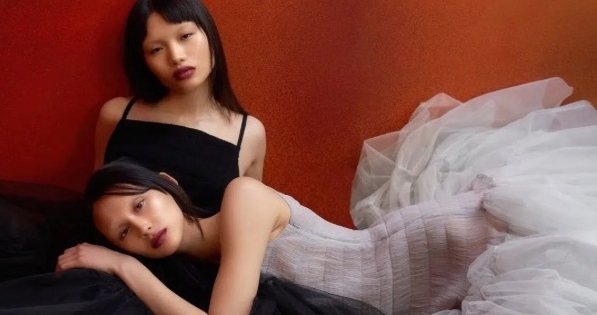Bridesmaids play a crucial role in a wedding, standing by the bride through all the emotional highs and lows of planning and celebrating her big day. As her most trusted companions, bridesmaids often invest their time and energy into making the bride's journey and wedding day, including all the pre-wedding events, extra special. However, when it comes to covering their own expenses—whether for dresses, travel, or hair and makeup—there is often confusion and debate. The answer to whether bridesmaids should pay for all their costs largely depends on the expectations set by the bride. While some brides may see their wedding as a shared experience, others might assume their bridesmaids will contribute financially. Here, we outline the general rules and etiquette surrounding bridesmaid expenses, however, the decision can ultimately be shaped by the relationship between the bride and her bridal party, as well as the financial circumstances of each involved.
Alice Mahran, Cassidy Bliss Cooper
Input & Decision-Making Power
Many aspects and etiquette need to be considered when it comes to the bridesmaids' expenses. One of the biggest points of tension around wedding expenses for bridesmaids is the level of input they have. First and foremost, the bride should consult with her bridesmaids about their budgets and preferences to make sure everyone is on the same page. Bridesmaids may feel comfortable covering their own expenses if they’ve had a say in the decisions and if the choices reflect their financial situations. However, if the bride has a very specific vision of each detail—from dresses to shoes, accessories, hair, and makeup—she should be prepared to shoulder some of the financial responsibility. A fair compromise is for the bride to cover or partially subsidize non-negotiable items.
Ilana Torbiner, Katie Bertagnolli
The Bridesmaid's Dress
Often the most significant expense is the bridesmaid’s dress. Traditionally, bridesmaids are expected to pay for their own dresses, however, brides now have many options to make this easier on their friends. Some brides choose mix-and-match styles or set a color scheme, allowing bridesmaids to select their own dresses to fit both their budgets and personal styles. However, if the bride chooses a specific designer or high price point, etiquette suggests she should consider contributing to or covering the dress cost. This is especially true if the dress won’t be usable for other occasions, as some styles can be overly formal or specific to the wedding’s theme.
Ella Mendelsohn, Betsy-Blue English
Alterations
Alterations are a common but often overlooked expense for bridesmaids. Even if a dress is ordered in the correct size, the fit is rarely perfect off the rack and requires tailoring for a more personalized fit. If the dress is chosen by the bride, it’s reasonable for the bride to help with alteration costs, especially if she selected a particular style or designer. However, in most cases, the cost of alterations is the responsibility of the bridesmaid.
The Bachelorette Party
The bachelorette party is typically a gift to the bride planned and paid for by the bridesmaids. Whether it's a weekend "staycation," an extravagant trip, or just a one-night celebration, it's important for all the bridesmaids to set expectations upfront. Having open communication and a clear budget will ensure that everyone is in agreement on what they can afford, making sure this event is fun and affordable for everyone.
Hair & Makeup
Hair and makeup are often part of the wedding “look” that the bride envisions, and many brides choose to hire a makeup artist for themselves and their bridal party. If professional hair and makeup are a requirement, or if the bride is hiring a makeup artist for everyone, it’s thoughtful for the bride to cover or at least contribute to these costs for her bridesmaids. However, if professional styling is optional, bridesmaids might choose to do their own or find a more affordable option, allowing them flexibility in managing this expense.
Charlotte Wise, Nous Nous Photography
Shoes & Accessories
For shoes and accessories, some brides have specific requests while others allow more freedom of choice. Bridesmaids traditionally pay for their own shoes and accessories; however, as with the bridesmaid’s dress, if the bride requests a specific style or brand, it’s considerate for her to be mindful of the price range. Alternatively, the bride can offer guidelines like color or heel height, letting bridesmaids pick something they already own or can comfortably purchase. Some brides gift accessories as thank-you presents, which can be a great way to offset this cost.
The Bridesmaid's Bouquets
Bouquets, corsages, and all other floral arrangements are usually essentials for the wedding day. The costs associated with florals can add up quickly, especially if the bride chooses elaborate or high-end flowers. Overall, because these elements are part of the overall wedding vision, it is etiquette for the bride to be responsible for this cost.
Travel & Accommodation
Bridesmaids are generally expected to cover their own travel expenses; however, depending on the destination, the cost of travel and accommodation can be very high. It’s important for brides to consider each bridesmaid’s circumstances, and many choose to show their appreciation by offering support with travel arrangements or accommodation. For destination weddings in lavish locations, some brides go further by covering part or all of the travel expenses to recognize the commitment their friends have made to be part of the celebration.








































